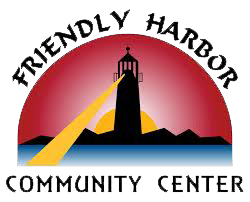Substance Use Recovery
Did you know?
SAMHSA’s 10 Guiding Principles of Recovery
- Hope
- Person Driven
- Many Pathways
- Holistic
- Peer Support
- Relational
- Culture
- Addresses Trauma
- Strengths/Responsibilty
- Respect
Group Activities

We are truly an organization who cares. Whether you are needing some face-to-face support, wanting to network with others in similar situations, or just needing a night of fun and entertainment with the art class, or dinner socials, we promise you a welcoming environment to fulfill your needs.
Check our online calendar for activity dates and times.
*Note: We are not equipped to directly serve children under the age of 18. Children are welcome, but only when directly supervised by an adult.

Peer Support Specialists
We are here to serve all adults in Southern Colorado who have a mental health or substance use condition, or who know and care about someone with such a condition (such as family, other supporters and community organizations)
Friendly Harbor has always worked to maintain positive connections and partnerships with local organizations that have similar interests in the well-being of those with mental health and substance use issues. We have gratefully received financial support from Mental Health America, Health Solutions, and Pueblo Community Health Center. We have had collaborative projects with NAMI, Pueblo Department of Social Services, Pueblo Problem-Solving Court, and the Sangre de Cristo Arts and Conference Center.
For those with mental health and substance conditions, and their families and other significant others, the Friendly Harbor Community Center (Friendly Harbor) provides a positive atmosphere for growth, encourages empowerment and self-reliance through peer support, advocacy, and role modeling, and provides opportunities to connect with other people who have faced similar problems. Friendly Harbor is not a treatment facility. Our Peer Specialists model the skills used to recognize and manage symptoms and build a satisfying, meaningful life. Their lived experience is a powerful complement to mental health services, but it is not treatment.
There are many different mental disorders, with different presentations.
Mental disorders include: depression, bipolar affective disorder, schizophrenia and other psychoses, anxiety disorders, post-traumatic stress disorder, dementia, intellectual disabilities and developmental disorders including autism.
There are effective strategies for preventing mental disorders such as depression and there are effective treatments for mental disorders and ways to alleviate the suffering caused by them.
Access to health care and social services capable of providing treatment and social support is key.
